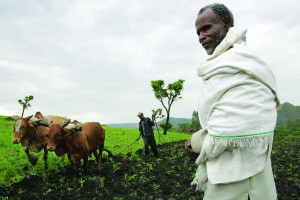Valery Giscard d'Estaing Boulevard
Building GANAMET
You are here : Home » Sustainable Development » In the fight against climate change, the most important stakeholders are the smallest
In the fight against climate change, the most important stakeholders are the smallest
The impact of climate change is noticeable on small farmers. And as first link in the value chains, it is important to begin the fight against the phenomenon with them.
 Growing up in England, I never imagined that I would someday develop a passion for working with smallholder farmers and biodiversity conservation in tropical countries. Yet both my professional and personal lives have become intertwined with these issues, and now I can’t imagine doing anything else.
Growing up in England, I never imagined that I would someday develop a passion for working with smallholder farmers and biodiversity conservation in tropical countries. Yet both my professional and personal lives have become intertwined with these issues, and now I can’t imagine doing anything else.
As a scientist with CI, I conduct research on agricultural practices and approaches that can help ensure farm productivity, improve farmer livelihoods and conserve biodiversity; participate in related technical expert groups and consortia (such as the Landscapes for People, Food and Nature Initiative); and work with our field programs to promote climate-smart, biodiversity-friendly landscapes across the tropics.
On a personal level, I am married to the son of a Costa Rican campesino (farmer), live on a small farm in rural Santa Elena (Costa Rica) and am surrounded by many in-laws, friends and neighbors who are small coffee or dairy farmers.
For me, the impacts of climate change on smallholder farmers are therefore visible on a daily basis. When the rains come late and temperatures soar above normal, I can see from my window that my father-in-law’s maize field is withering, and know that other families will also suffer both the loss of important food crops and potential income.
River and rice paddies in China
A river flows through rice paddies in China. Thanks to climate change impacts, many crops are failing, pest and disease outbreaks are becoming more common and destructive, and many traditional farming systems are no longer viable. (© Quan Long)
Climate change impacts are already being felt by smallholder farmers worldwide. With rising temperatures and more erratic rainfall, many crops are failing, pest and disease outbreaks are becoming more common and destructive, and many traditional farming systems are no longer viable.
Read more on blog.conservation.org


